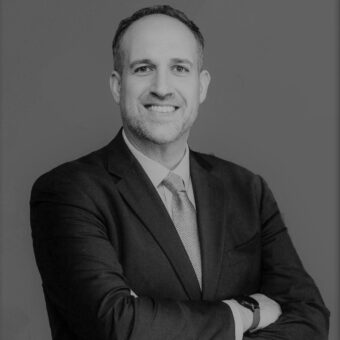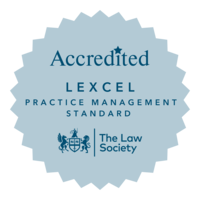| < 1 minute read
Welcome to our free guide on claims in the Court of Arbitration for Sport (CAS). This comprehensive guide will answer all the questions that you might have and how we can help you with your claim.
Francis Wilks & Jones solicitors have direct experience of assisting individuals int he Court of Arbitration of Sport, most recently successfully defending a premier league footballer who found himself subject to a freezing order following judgment by the Court. We successfully had the freezing order removed and recovered legal costs for our client.
Whatever your enquiry, this fantastic free guide should help you. Or alternatively, ring Stephen Downie today and he can help. Stephen is the partner who heads up the commercial litigation and dispute resolution team at FWJ and as well as being an expert lawyer, is also a qualified accountant with particular expertise in complex accounting and financial matters.
In addition to our team at FWJ, we also work closely with other experts, such as barristers, who might be needed on your case. This means that we can always put together the right team for you – and maximise the chances of a successful outcome.
In an on-going legal battle for three years, your engagement in the latter six months was momentous and rewarding for me. Your excellent work, sharp legal acumen and overriding professionalism was an experience that I should have enjoyed at the outset. I have no reservation in highly recommending your firm and record my heartfelt thanks for your excellent work on my behalf.
A client for whom we provided assistance in a long-term commercial litigation case
Court of Arbitration for Sport
The Court of Arbitration for Sport (also known as cas sport) was founded to settle sports related disputes. Its headquarters are based in Lausanne, Switzerland and it has two decentralised offices located in New York City and Sydney. Since its formation CAS sport has gained the trust and recognition of the international sports community and today is the last instance of appeal for parties involved in a wide range of sports related disputes.
The Court of Arbitration for Sport is considered in the sports world to be an efficient cost effective and final resolution for sports related disputes.
The Court of Arbitration for Sport
The Court of Arbitration for Sport (commonly referred to as CAS sport)resolves legal disputes in the sports world by way of arbitration or mediation.
Any individual or legal entity can apply to use the CAS sport services which includes athletes, clubs, sports federations, organisers, sponsors or television companies. The Court of Arbitration for Sport procedures take place in French or English.
Background & history
The Court of Arbitration for Sport is a quasi-judicial body that was established in 1984 and placed under the administrative and financial authority of the International Council of Arbitration for Sport (ICAS).
The Court of Arbitration for Sport has around 300 arbitrators who are selected from all over the world for their specialist knowledge in arbitration and sports law. A CAS list of general arbitrators is available on the website. A list of specific football CAS arbitrators is also available. The Court of Arbitration for Sport also set up temporary courts for the purposes of the Olympic Games, to ensure special procedural rules were in place for such games.
Main purpose
The purpose of CAS sport is to provide access to justice for athletes who may struggle financially to pursue a claim. The Court of Arbitration for Sport has two options to settle disputes: arbitration or mediation and it is estimated that on a yearly basis 300 cases are registered by the Court of Arbitration for Sport.
Athletes may even be offered legal aid to help fund their cases and cover the costs of arbitration. This may also include a contribution towards legal fees as well.
Awards & enforcement
Arbitral awards are enforceable in the same way as Judgments in the civil courts leading to the Court of Arbitration for Sport being such a great success and usually the first port of call for sport disputes.
Arbitrators & Arbitration in the Court of Arbitration for Sport
The Court of Arbitration for Sport performs its functions through arbitrators who are appointed for a period of four years, which can be renewed depending on various factors.
- When appointing an arbitrator, ICAS will take into consideration an arbitrator’s personality and level of competence with a view to safeguarding the interests of the athletes.
- It is also vital that cas sport arbitrators carry out their functions with total impartiality and independence.
- Most importantly, an arbitrator selected in a panel must have no particular connection with any of the parties.
Arbitrators are not linked to a specific CAS sport division, and therefore can sit on panels to rule under the ordinary and appeals procedure. Court of Arbitration for Sport panels comprise between 1 – 3 arbitrators and they are also bound by the duty of confidentiality.
Different Divisions in the Court of Arbitration for Sport
Following the reform of the Court of Arbitration for Sport two divisions were formed
(i) an “Ordinary Arbitration Division”, for sole-instance disputes and
(ii) an “Appeals Arbitration Division”, for disputes resulting from final-instance decisions taken by sports organisations.
Each division in the Court of Arbitration for Sport is headed by a President whose role is to manage the arbitration operation, once the procedure is under way, and before the panel of arbitrators are selected. The panel is usually made up of 3 arbitrators. However, if the parties agree, or if cas sport considers it suitable, a sole arbitrator can be appointed, but this will depend on the nature of the case.
The President’s role includes issuing orders on requests for interim relief or for suspensive effect, and intervening in establishing the panel of arbitrators. However once the panel is selected, the president’s role diminishes and the arbitrators subsequently take over procedurally.
- The CAS sport is firmly established as the Supreme Court for sport worldwide which provides a flexible and efficient procedure for the resolution of sports disputes and CAS sport arbitrators work closely with the CAS Court Office to ensure that decisions are made in a competent and efficient manner.
- The CAS sport is continuing to find ways to reduce costs for the parties as sports cases can involve huge sums of money yet the CAS sport procedure continues to operate in a simple yet flexible way. In the words of the Swiss Federal Tribunal “there appears to be no viable alternative to this institution which can resolve international sports-related disputes quickly and inexpensively.”
Contact expert Court of Arbitration for Sport Solicitors now
At Francis Wilks & Jones we are the experts in the Court of Arbitration for Sport. We have a team who deal specifically with the Court of Arbitration for Sport. We understand the need for speed and technical ability when it comes to this area of the law. In addition to the FWJ team, we can also call on experienced barristers to assist when required. Contact us now for our expert Court of Arbitration for Sport assistance.
The Court of Arbitration for Sport head office is located in Lausanne, Switzerland and has two other offices located in Australia and New York.
CAS sport was established in 1984 by Juan Antonio Samaranch the President of the International Olympic Committee (IOC). CAS sport became officially independent from the IOC in 2003 and became the true Supreme court of the world for Sport. It is regarded as a proper court of arbitration whose awards have the same dominance as judgments of a state court.
There is talk that the Court of Arbitration for Sport is planning to move its headquarters from the Château de Béthusy to the south part of the Palais de Beaulieu which are both based in Lausanne.
History of CAS
Due to a substantial increase in the number of international sports-related disputes in the 1980’s and the lack of any independent authorised organisation to deal with them and make binding decisions, there was a call for a sporting dispute resolution establishment to be established with the power to grant awards that were legally binding.
- The IOC President at the time, H.E. Juan Antonio Samaranch lead the way in creating a sports-specific institution to resolve issues relating to sport.
- At the same time there was a desire for an institution to have specialised authority to settle international disputes whilst offering flexibility, speed and low-cost procedures.
The initial concept for the Court of Arbitration for Sport contained provisions for an arbitration procedure which included
(i) an attempt by the parties to reach prior settlement,
(ii) IOC responsible for all operating costs of the court and
(iii) the jurisdiction of the CASsport should not affect the athletes or federations but remain available to the parties.
In 1983, the IOC ratified the statutes of the Court of Arbitration for Sport, which came into force in June 1984.
In 1996, the ICAS created two further offices, the first in Sydney and the second in Denver. In 1999, the Denver office was transferred to New York. Both are connected to the cas sport court office in Lausanne. The purpose of the formation of The Court of Arbitration for Sport was to allow parties located in Oceania and North America to have access to the Court of Arbitration for Sport.
ICAS also formed a cas sport ad hoc division to settle within a 24-hour time-limit any dispute arising during the Olympic Games in Atlanta. This ad hoc division had 2 presidents and 12 arbitrators.
Since 1996, ad hoc divisions were created for the Olympic Summer and Winter Games. Furthermore ad hoc divisions were also set up for the Commonwealth Games, UEFA European Championship and FIFA World Cup.
UEFA requested that the Court of Arbitration for Sport establish an ad hoc division for the European Football Championships held in Belgium and the Netherlands in 2000.
The success of these ad hoc divisions has played a crucial role in making the Court of Arbitration for Sport well-liked amongst athletes, sports organisations and the media. The formation of this ad hoc structure is a major point in the history of the CAS.
Contact an expert CAS sport Solicitor now
Please contact one of our expert CAS sport lawyers at Francis Wilks and Jones for your friendly and informal consultation. Our practical daily experience and legal expertise means that we can assist you with your CAS Order enquiry.
We are commonly asked, “what is the purpose of the Court of Arbitration for Sport CAS”. The purpose is simple, it is to resolve sporting disputes resulting from contractual relations or torts by way of an arbitration or mediation procedure. At Francis Wilks & Jones we have a team of experts able to assist you in this area. Contact one of our Court of Arbitration for Sport experts now and we can assist
The purpose of the CAS Court
The answer to the question “What is the purpose of the court of arbitration for Sport CAS” is simple. It is there to help resolve disputes for sports individuals, often as a result of the breakdown of contractual relations.
At Francis Wilks & Jones we can help you resolve a dispute by guiding you through the Court of Arbitration for Sport and making sure that you avoid any unnecessary mistakes – as well as maximising your chances of a good result. The procedures can be hard to understand and simple errors can have serious consequences.
- To submit a dispute to the Court of Arbitration for Sport the parties must first agree this in writing i.e. one-off basis or in an arbitration agreement.
- Any dispute relating to sport can be submitted to the Court of Arbitration for Sport that are of a commercial or disciplinary nature. The team at Francis Wilks & Jones can make sure that the initial steps are correctly taken.
It is widely accepted now that it is often a condition of entry to sports events that athletes execute a form which includes a provision for CAS sport arbitration.
The types of disputes which can be referred to the Court of Arbitration for Sport include
- Those of a Commercial Nature. These involve disputes relating to the contracts including (employment contracts and agency contracts) and civil liability issues i.e. accident to an athlete.
- Those of a Disciplinary Nature. These relate to cases that are doping-related, violence and abusive behaviour. These types of cases are firstly dealt with by sports authorities and then become the subject of an appeal to the Court of Arbitration for Sport, as a last instance.
Potential Costs of a CAS sport procedure
For every case filed at CAS sport there is a filing fee of 1000 CHF. Thereafter the costs of CAS procedures are determined by the type of procedure and nature of the dispute.
- For Ordinary Arbitration Procedure the parties contribute to the costs of the arbitrations and are requested to pay an advance of costs at the outset of the procedure which are relatively modest compared to other arbitral institutions.
- For Appeal Arbitration procedures, appeals against decisions which are exclusively of a disciplinary nature and which are rendered by an international federation are free. In other words, the fees and costs of the arbitrators are born by cas sport. For all other appeal procedures, the parties contribute to the costs of the arbitration.
Contact expert Court of Arbitration for Sport Solicitors now
Francis Wilks & Jones are experts in Court of Arbitration for Sport matters. We have a team who deal specifically with the Court of Arbitration for Sport. We also have excellent links to other third parties who might be needed, such as experienced barristers. We can put together the team you need to deal with your specific case. Contact us now for our expert Court of Arbitration for Sport assistance.
There are various things you should know about the different procedures in the Court for Arbitration for Sport if you are considering using it. At Francis Wilks & Jones our team can help guide you through these procedures to make sure that you stand the best chance of success. Simple mistakes can often lead to drastic consequences. Let us help you through the process.
Ordinary Arbitration Procedures explained
The Court for Arbitration for Sport has various procedures including the ordinary arbitration procedure. It is therefore very important if you are considering using the Court for Arbitration for Sport or already involved in it, that you fully understand this process if it is applicable to you and make sure you don’t make any mistakes. It can have a huge difference to the final outcome.
Procedure to the ordinary Arbitration Procedure
This CAS procedure governs disputes on a first instance basis and examples of the types of matters referred include classic international commercial arbitration cases and include disputes involving sponsorship contracts, licencing and media rights.
1. The disputing party sends a request for arbitration containing the following:
- the name and full address of the Respondent(s);
- a brief statement of the facts and legal argument, including a statement of the issue to be submitted to the Court for Arbitration for Sport for determination;
- its request for relief;
- a copy of the contract containing the arbitration agreement or of any document providing for arbitration in accordance with these Procedural Rules;
- any relevant information about the number and choice of the arbitrator(s); if the relevant arbitration agreement provides for three arbitrators, the name of the arbitrator from the Court for Arbitration for Sport list of arbitrators chosen by the Claimant.
2. The Respondent then submits a reply to Court for Arbitration for Sport containing the following:
- a brief statement of defence;
- any defence of lack of jurisdiction;
- any counterclaim.
3. The parties together with their written submission shall produce all written evidence (witness statements and expert evidence) upon which they intend to rely on. After exchange of written submissions, the parties cannot produce further written evidence, unless mutually agreed or permitted by the Panel.
4. If a counterclaim is filed, the CAS Court Office shall fix a time period for the Claimant to file a response to this counterclaim.
5. A hearing date will be listed and the panel have the authority to limit or disallow witnesses/ experts on the grounds of irrelevance.
6. The final award will be granted to the parties a few weeks later which is final and binding.
Contact expert Court of Arbitration for Sport Solicitors now
Francis Wilks & Jones are experts in Court of Arbitration for Sport matters including ordinary arbitration procedures. Contact our expert team now for advice on Court of Arbitration for Sport matters. We are here to help you.
There are various things you should know about the appeal procedures in the Court for Arbitration for Sport if you are considering using it. At Francis Wilks & Jones our team can help guide you through these procedures to make sure that you stand the best chance of success in the appeal process. Avoid simple mistakes and maximise your chances of success. Contact us now.
CAS – The Appeal Arbitration Procedures explained
The Court for Arbitration for Sport has specific procedures for making and hearing appeals. It is therefore very important if you are considering using the Court for Arbitration for Sport appeal process that you take advice on it and make sure you avoid potential costly mistakes.
Procedure to the Appeal Arbitration Procedure
The appeal procedure governs appeals against decisions of sports bodies, including transfer and compensation disputes related to football and disciplinary sanctions for anti- doping violations.
An appeal against the decision of a federation, association or sports-related body may be filed with CAS sport if the statutes or regulations of the said body permit and/or the parties have concluded a specific arbitration agreement and lastly the Appellant has exhausted the legal remedies available to it prior to the appeal.
1. The Appellant shall submit to the Court of Arbitration for Sport a statement of appeal containing the following:
- the name and full address of the Respondent(s);
- a copy of the decision appealed against;
- the Appellant’s request for relief;
- the nomination of the arbitrator chosen by the Appellant from the CAS list, unless the Appellant requests the appointment of a sole arbitrator;
- if applicable, an application to stay the execution of the decision appealed against, together with reasons;
- a copy of the provisions of the statutes or regulations or the specific agreement providing for appeal to the Court of Arbitration for Sport / CAS.
The time limit for appeal shall be 21 days from the receipt of the decision appealed against.
2. Within 10 days following the expiry of the time limit for the appeal, the Appellant shall file with the CAS Court Office a brief with the facts and legal arguments giving rise to the appeal, together with all exhibits and specification of other evidence upon which it intends to rely on.
3. The Appellant together with their appeal brief shall file written evidence (witness statements and expert evidence), upon which they intend to rely on.
4. The CAS Court Office will then forward the statement of appeal to the Respondent, and the President of the Division shall proceed with the formation of the Panel. The CAS Court Office shall also provide a copy of the statement of appeal and appeal brief to the authority which issued the challenged decision, for further information.
5. Within 21 days of receipt of the grounds for the appeal, the Respondent shall file to the CAS Court Office an response containing the following:
- a statement of defence;
- any defence of lack of jurisdiction;
- any exhibits or specification of other evidence upon which the Respondent intends to rely;
- the name(s) of any witnesses, including a brief summary of their expected testimony; the witness statements, if any, shall be filed together with the answer, unless the President of the Panel decides otherwise;
- the name(s) of any experts it intends to call, stating their area of expertise, and state any other evidentiary measure which it requests.
6. The Panel is selected from a closed list of 264 CAS sport members who have full authority to review the facts and the law. It may issue a new decision which replaces the decision challenged or annul the decision and refer the case back to the previous instance.
The closed list is subject to criticism due to the restriction on a party’s choice to nominate an arbitrator and allows an exclusive club of arbitrators to develop. However, it is important to bear in mind that these arbitrators are legal experts in the area of sports law and therefore ensures that the best suited Panel resolves the parties disputes competently and quickly. Furthermore upon reviewing the list of arbitrators you will note they come from various backgrounds and professions.
7. The award shall be rendered, by a majority decision, or in the absence of a majority, by the President alone. Prior to executing the award it is sent to the CAS Secretary General who may make rectifications of and/or draw attention of the Panel to fundamental issues of principle.
8. The award, notified by the CAS Court Office, shall be final and binding upon the parties. In most cases the award is made on the day of the hearing.
Contact expert Court of Arbitration for Sport Solicitors now
Francis Wilks & Jones are experts in Court of Arbitration for Sport matters including appeals procedures. Contact our expert team now for advice on Court of Arbitration for Sport matters. We are here to help you.
Mediation in the Court of Arbitration for Sport is a non-binding and informal procedure in which the parties attempt to negotiate with each other. This is done with the assistance of an experienced CAS mediator trained in helping to settle sports-related disputes.
The Court of Arbitration for Sport has approximately 50 mediation procedures and now deals with a wide range of disputes. It is however not widely used but is offered to all parties before engaging in ordinary arbitration procedure. At Francis Wilks & Jones we can advise on the merits of the mediation procedures.
CAS Sport Mediation
The party starting mediation proceedings in the Court of Arbitration for Sport will need to request this firstly in writing to the CAS Court Office.
- The next step is that a mediator is then appointed, by the respective parties, from a list of CAS mediators or, in the absence of any agreement, by the Court of Arbitration for Sport President.
- The mediation procedure in the Court of Arbitration for Sport takes place in the manner which is ideally agreed by the parties and reflected in an agreement. However, if this is not possible the Court of Arbitration for Sport mediator will set out the way in which the mediation will occur.
The mediator always encourages the settlement of the issues in dispute and will come up with different options to assist in the process. However, like most mediations, he does not have the power to impose a solution on the parties.
If successful, the CAS mediation is finalised by the parties signing a settlement agreement.
Contact expert CAS Arbitration Solicitors now
Please contact one of our expert CAS sport mediation lawyers now for your informal consultation. Francis Wilks & Jones have significant experience in Court of Arbitration for sport and deal regularly with the court and dealing in aspects of mediation. Don’t delay contact the CAS sport experts now.
As with any legal process, there are legal costs involved in running a mediation in the Court of Arbitration for Sport. It is important that these are fully understood in advance of commencing the process. At Francis Wilks & Jones we provide complete transparency when it comes to costs. Contact us now and we can help guide you through the question of CAS mediation costs in the Court of Arbitration for Sport.
CAS Administrative costs
The Court of Arbitration for Sport administrative costs for a mediation is CHF 1,000.
Each party involved in a dispute submitted to CAS mediation must pay the CAS administrative costs in an equal sum of CHF 500.
Mediator’s costs and fees
The amount of fees to be paid to the mediator is fixed by the Secretary General of the Court of Arbitration for Sport on the basis of (i) the work provided by the mediator and (ii) time reasonably devoted to her/his task. CAS mediators are paid an hourly rate of CHF 200 plus VAT.
- For cases with disputed value up to CHF 50,000, the mediator’s fees are capped at a maximum of CHF 2,000, plus VAT.
- For cases with disputed value up to CHF 150,000, the mediator’s fees are capped at a maximum of CHF 4,000, plus VAT.
The mediator is also allowed to request reimbursement of her/his disbursements i.e. travel and meals (capped at CHF 150 per day).
If the mediator is unable to provide receipts for any of these disbursements they will only be reimbursed up to a maximum of CHF 200. If a mediator does not submit the time spent or receipts for disbursements within 30 days of the termination of the mediation, the mediator is deemed to have waived their rights to costs and fees and the Court of Arbitration for Sport is not entitled to pay her/him any indemnity.
Contact expert CAS Solicitors now
Please contact one of our expert cas sport lawyers now for your friendly and informal consultation. Francis Wilks & Jones can advise on all aspects of CAS related work including CAS costs. We are highly successful and have helped many clients obtain result they are after in the Court of Arbitration for sport. Don’t delay contact the CAS sport experts now.







